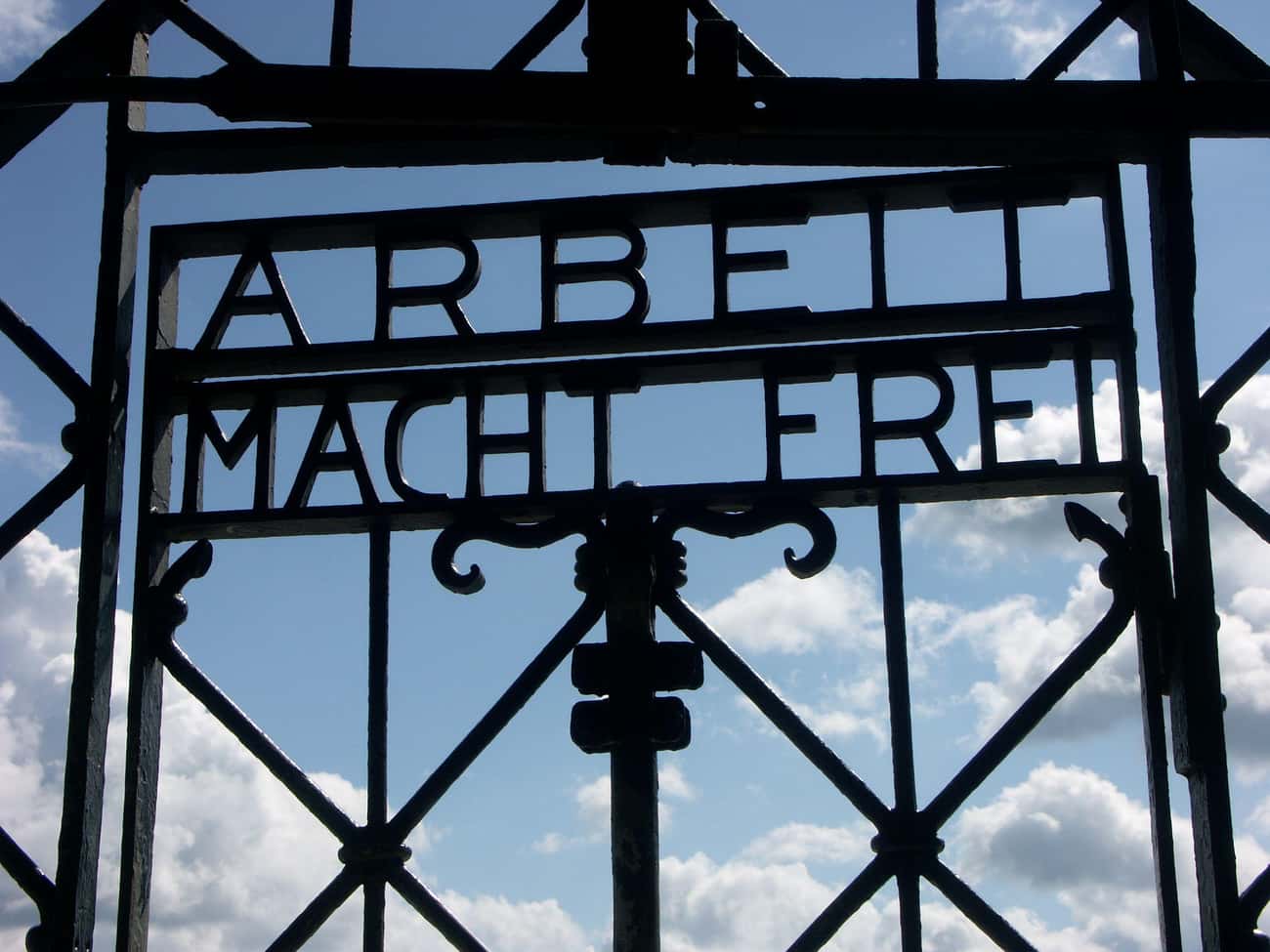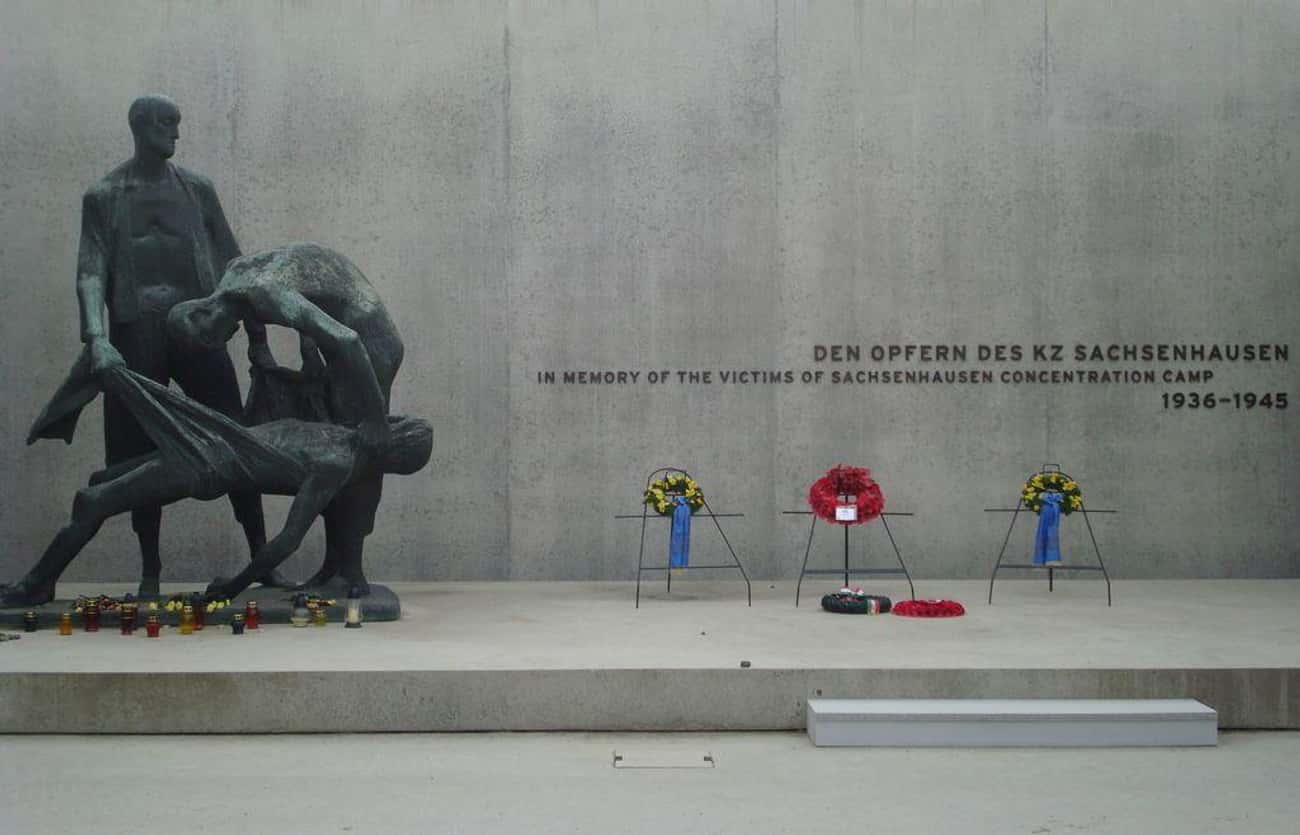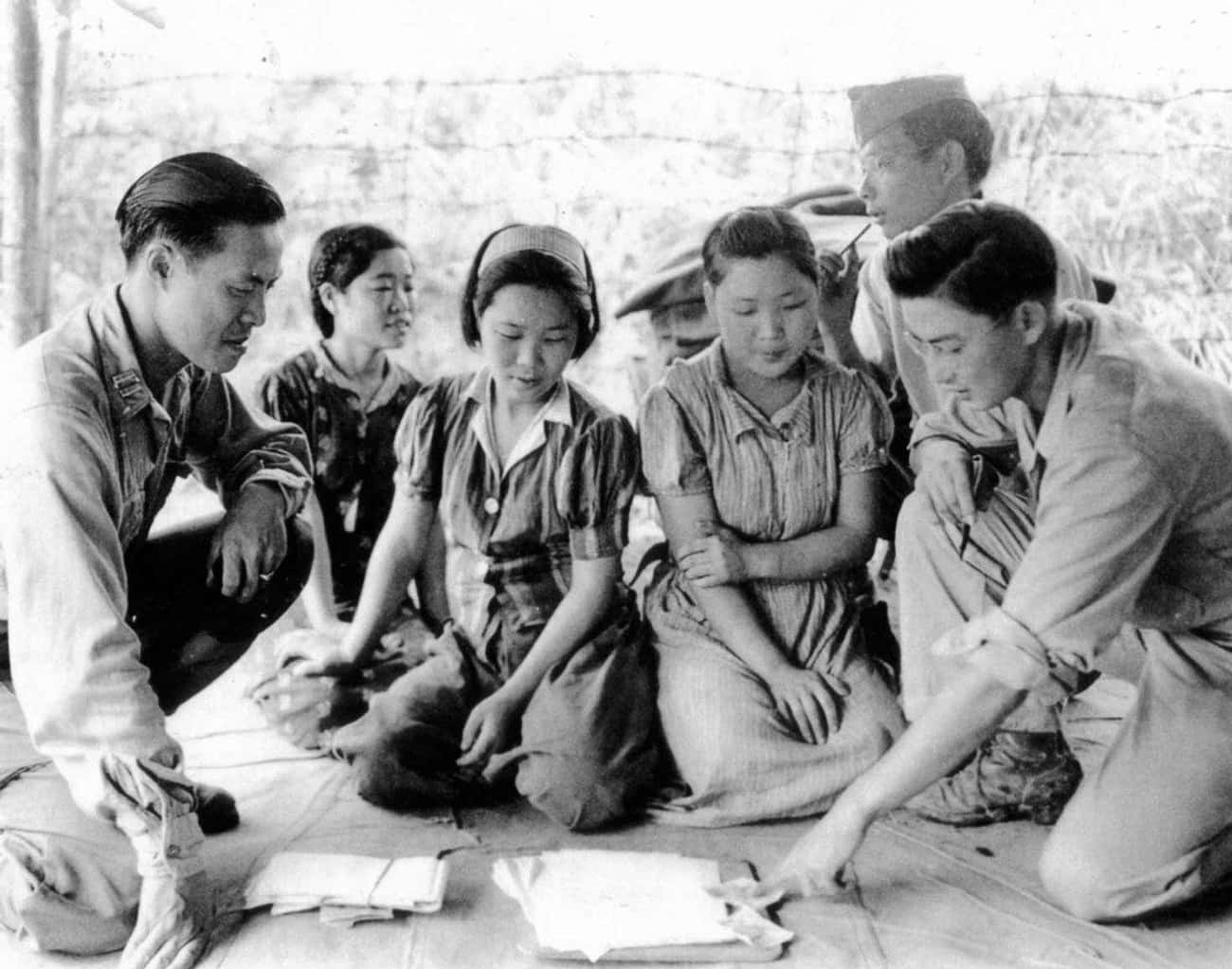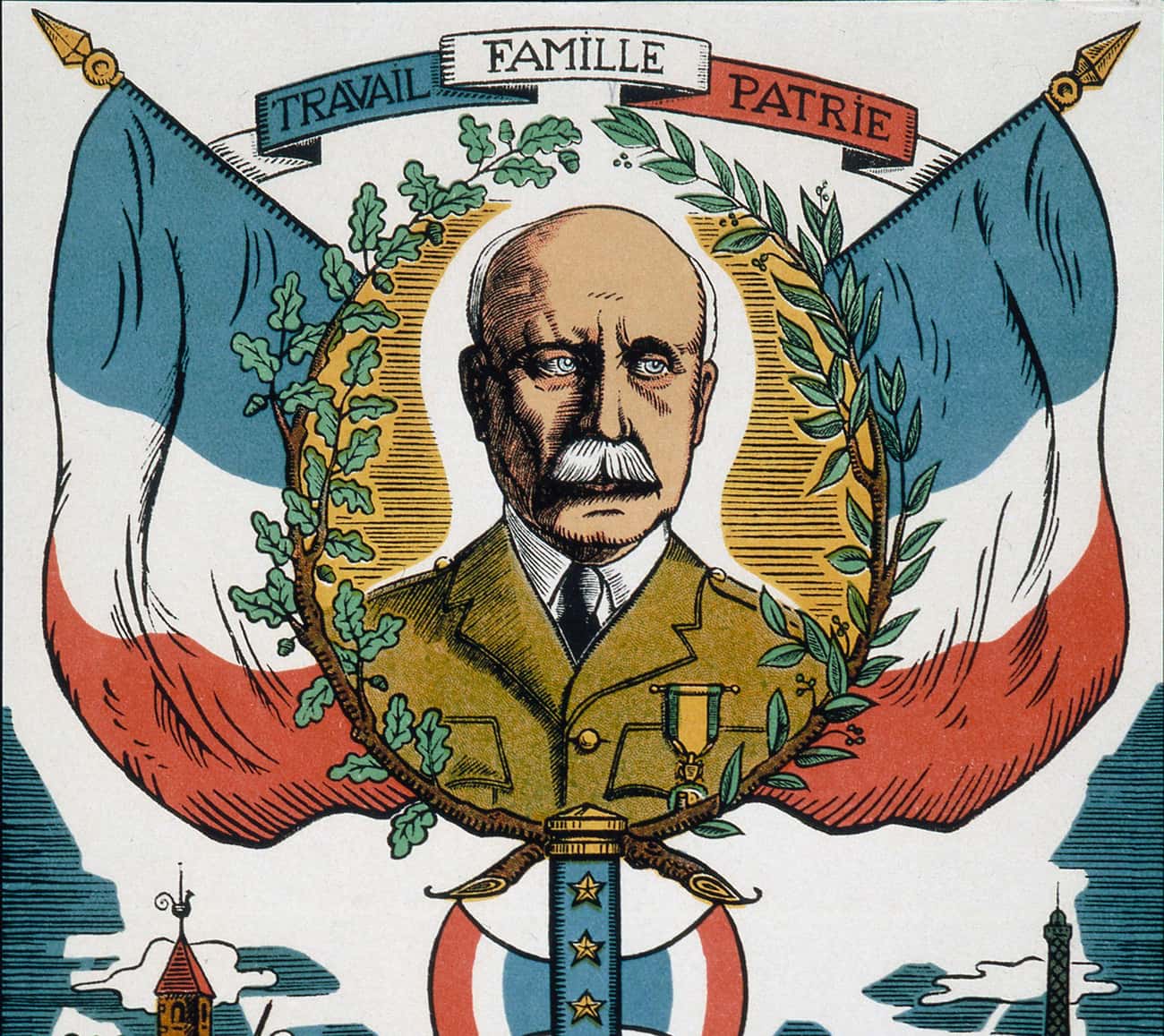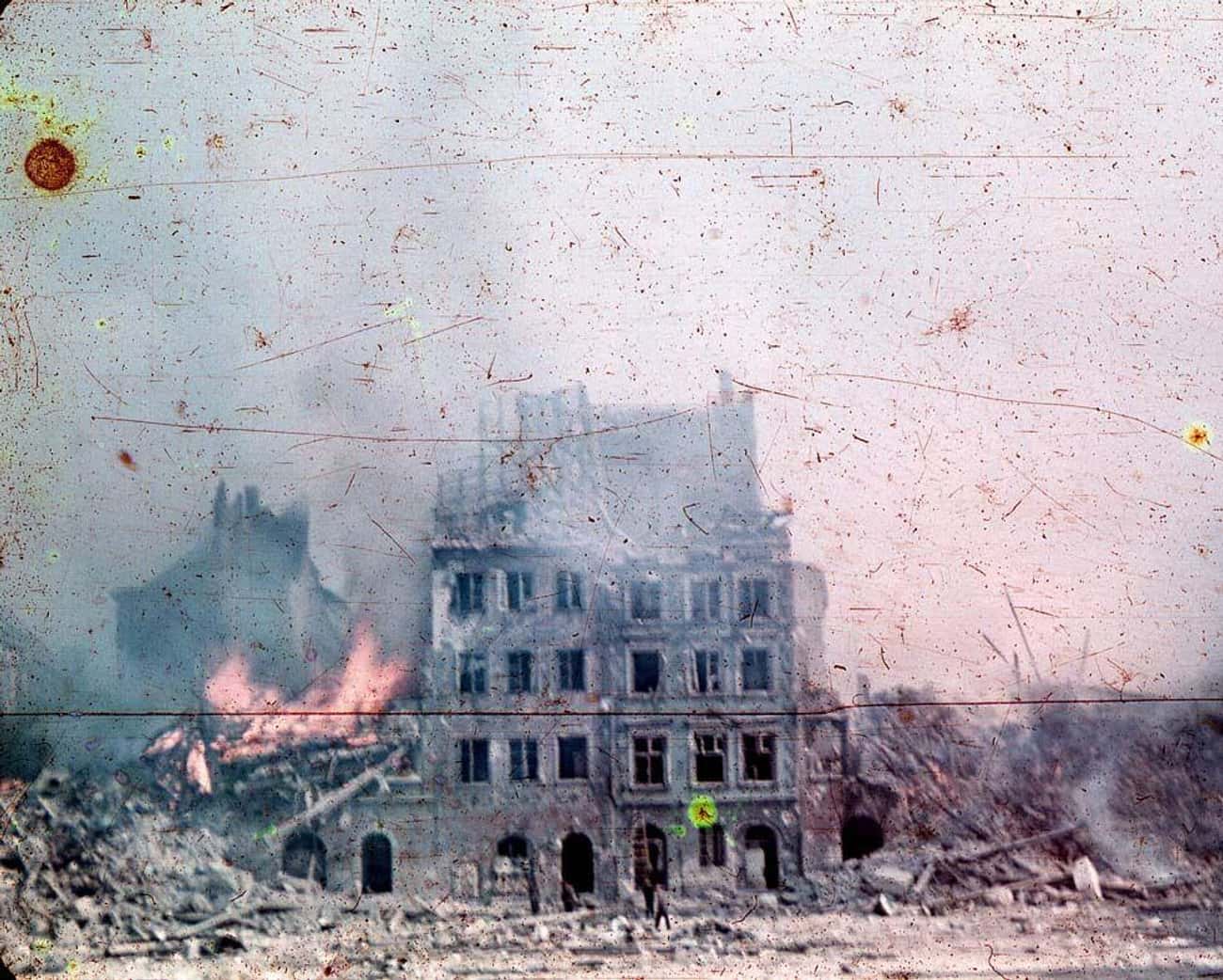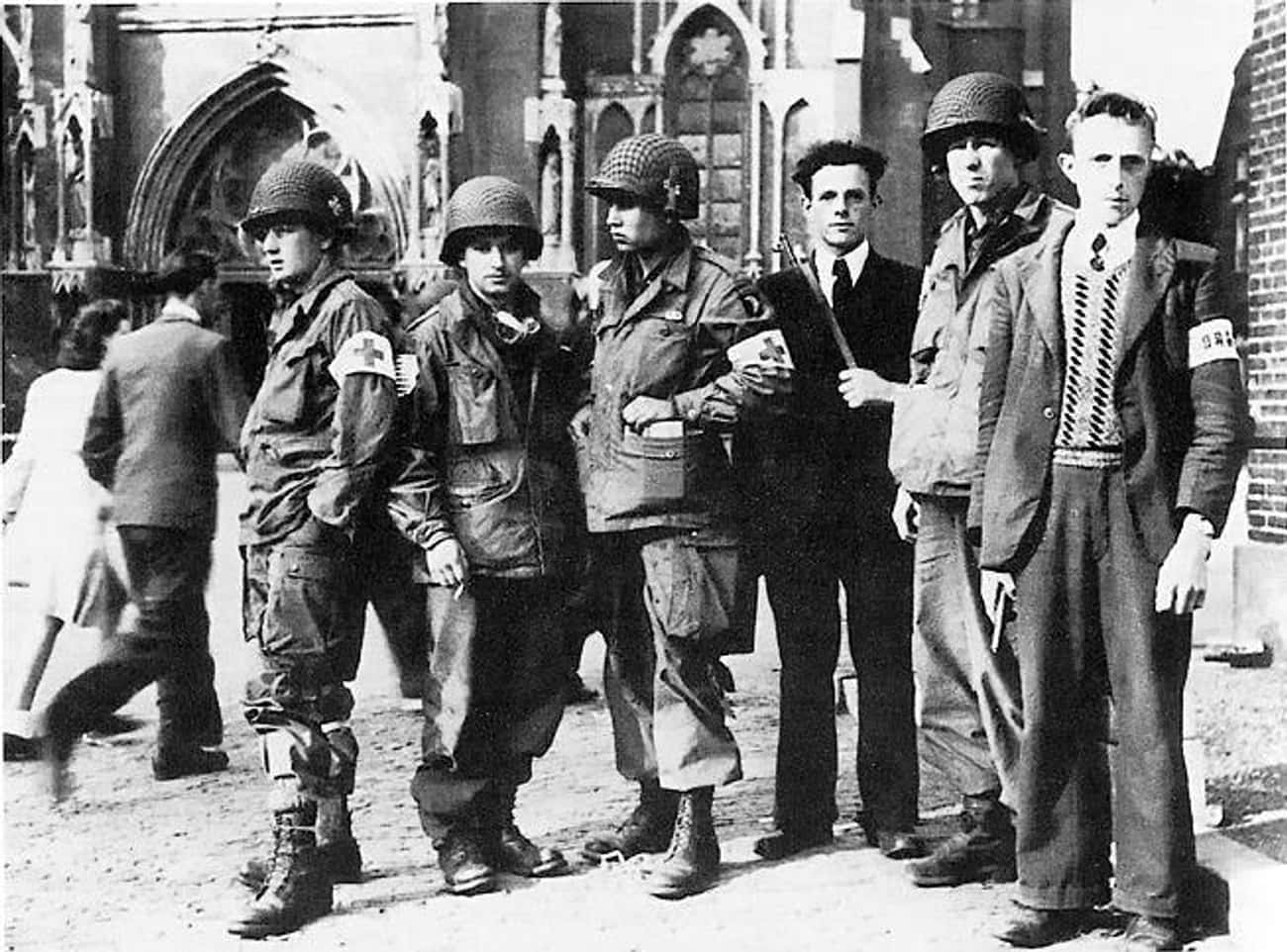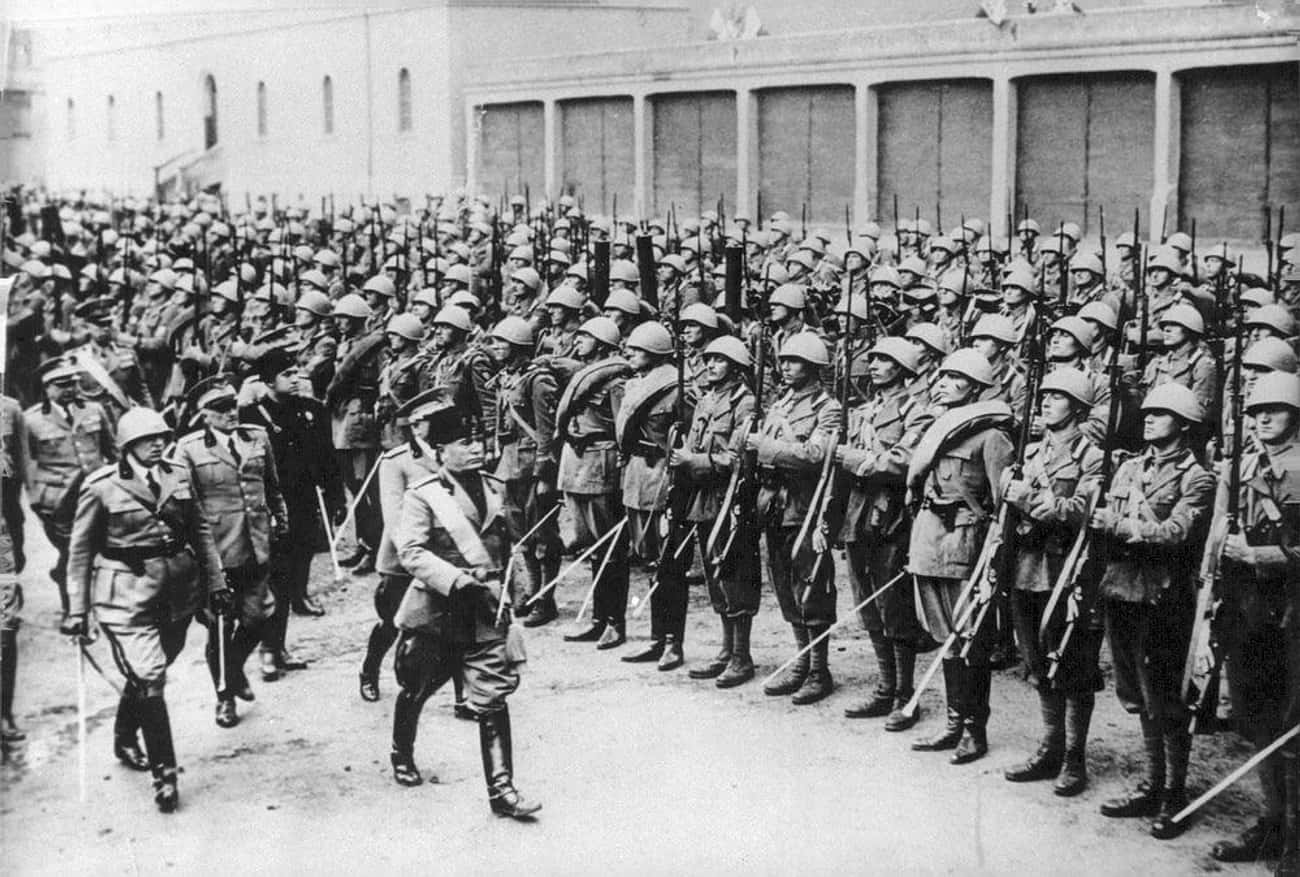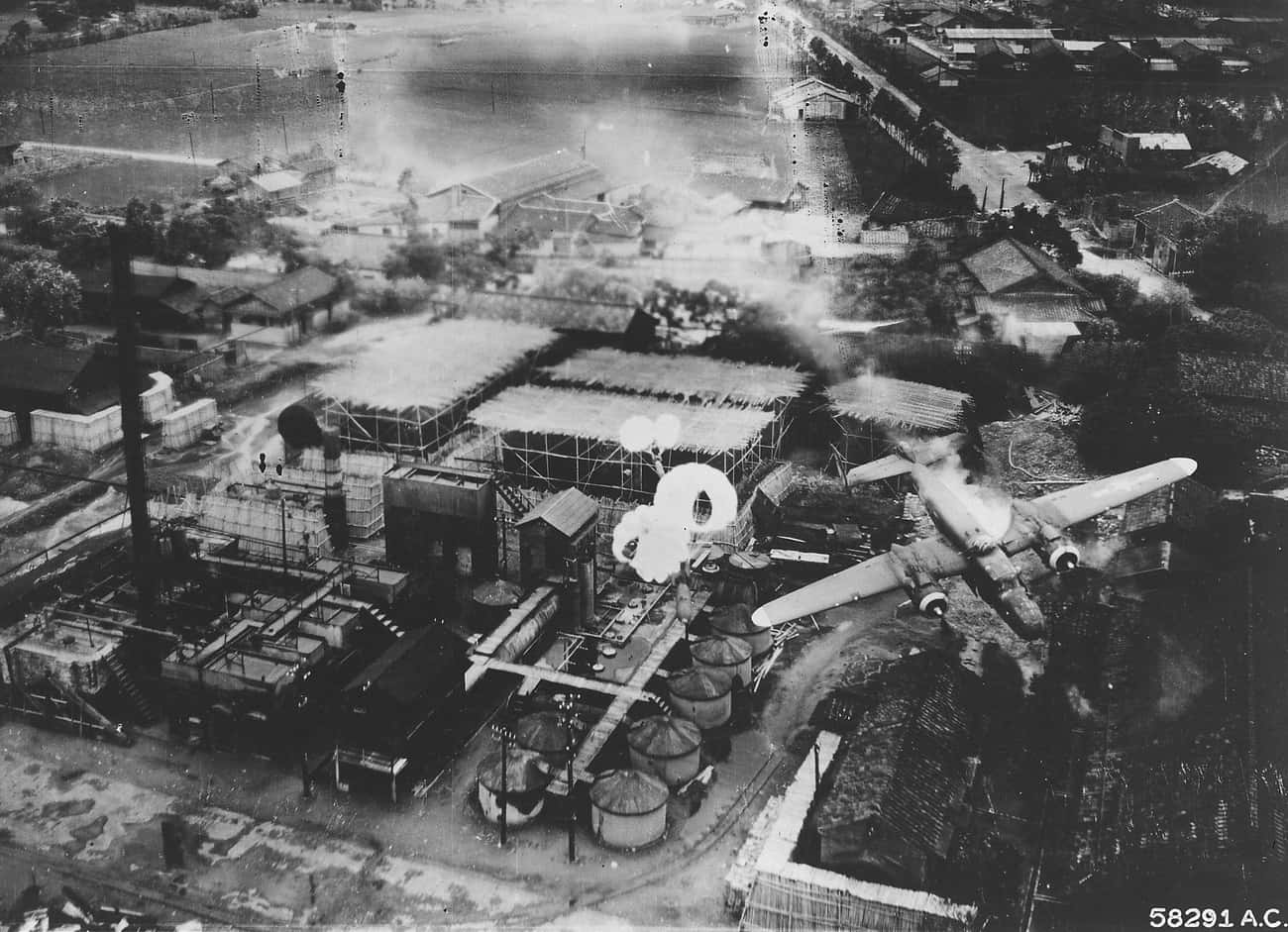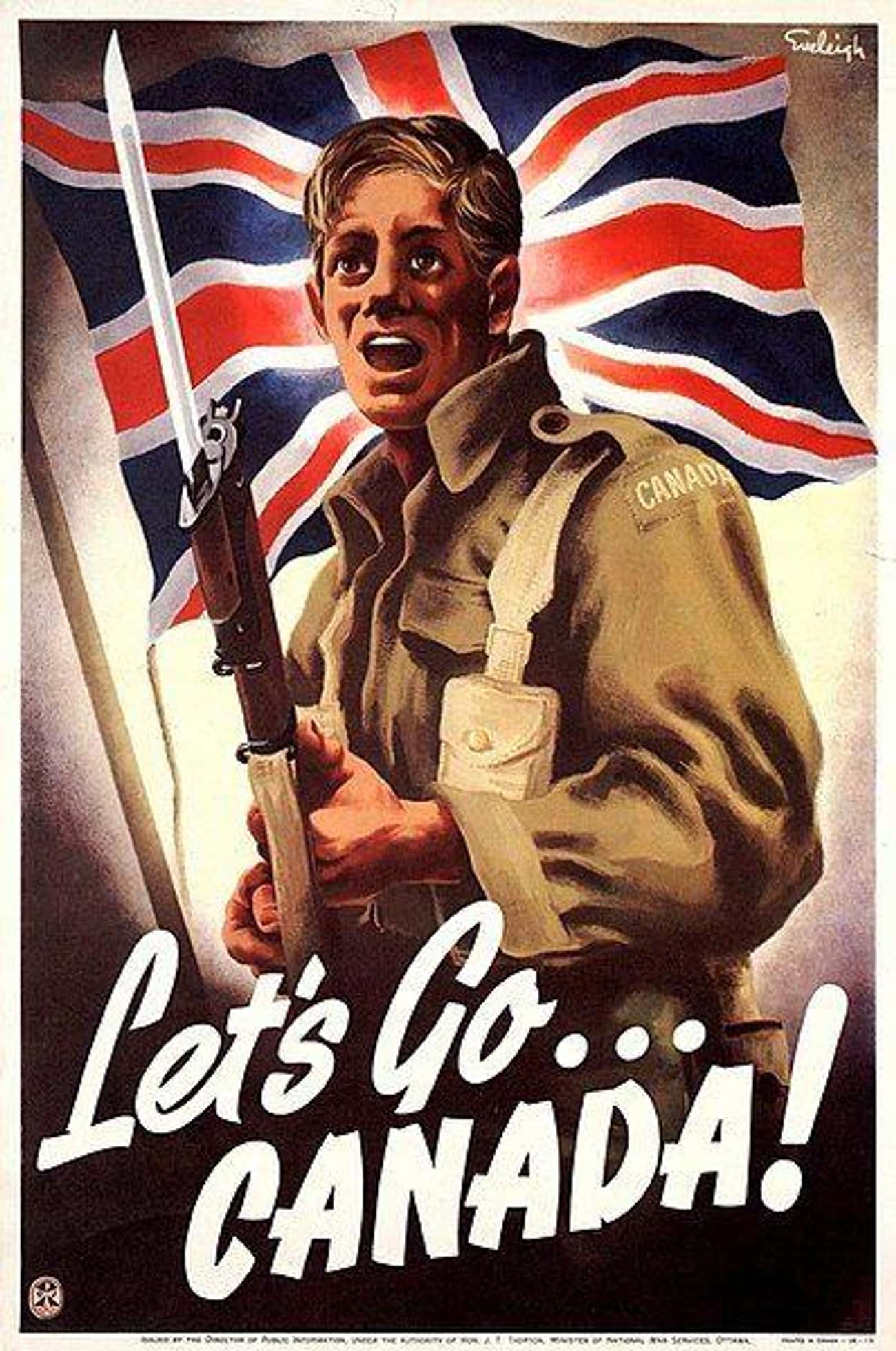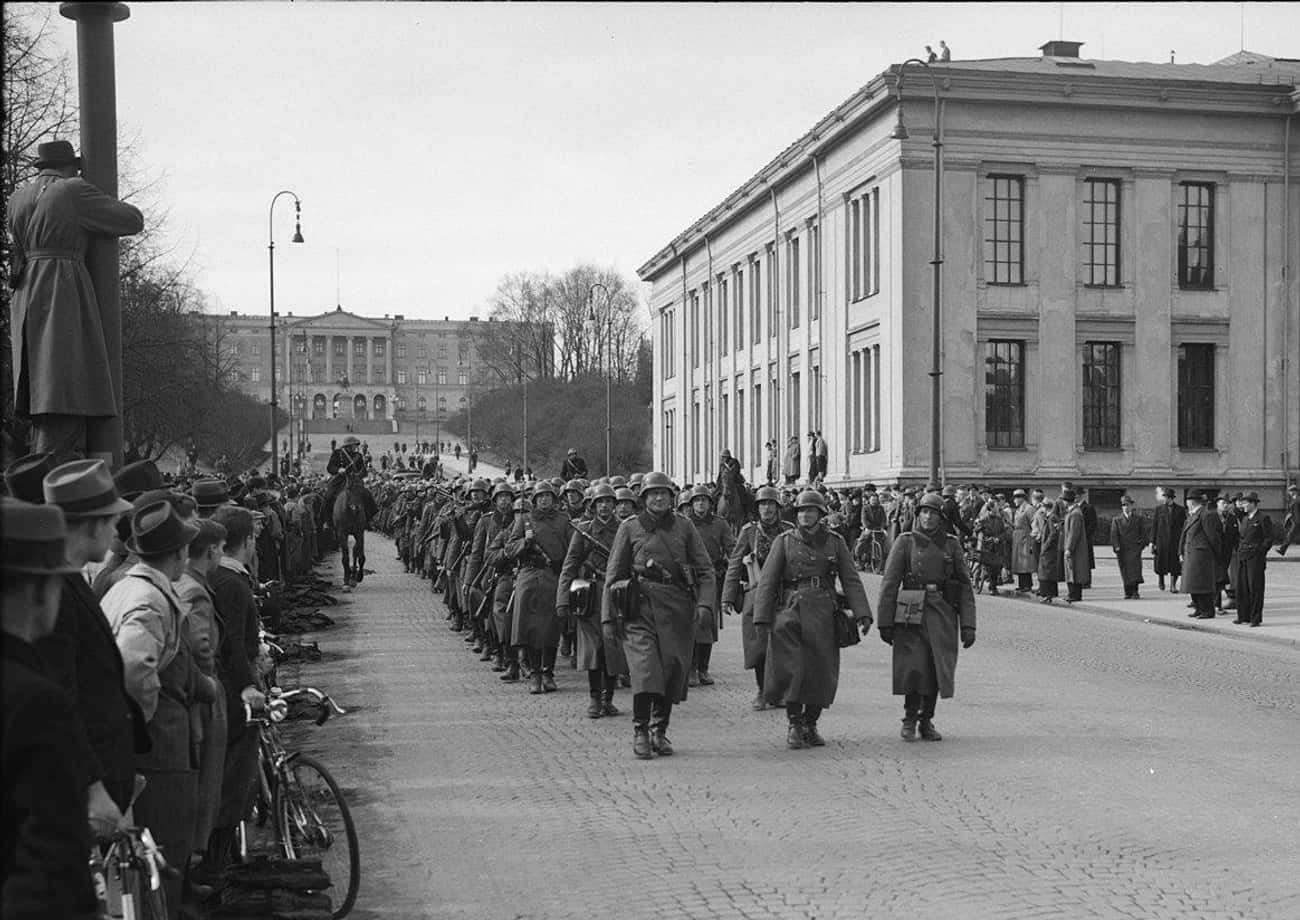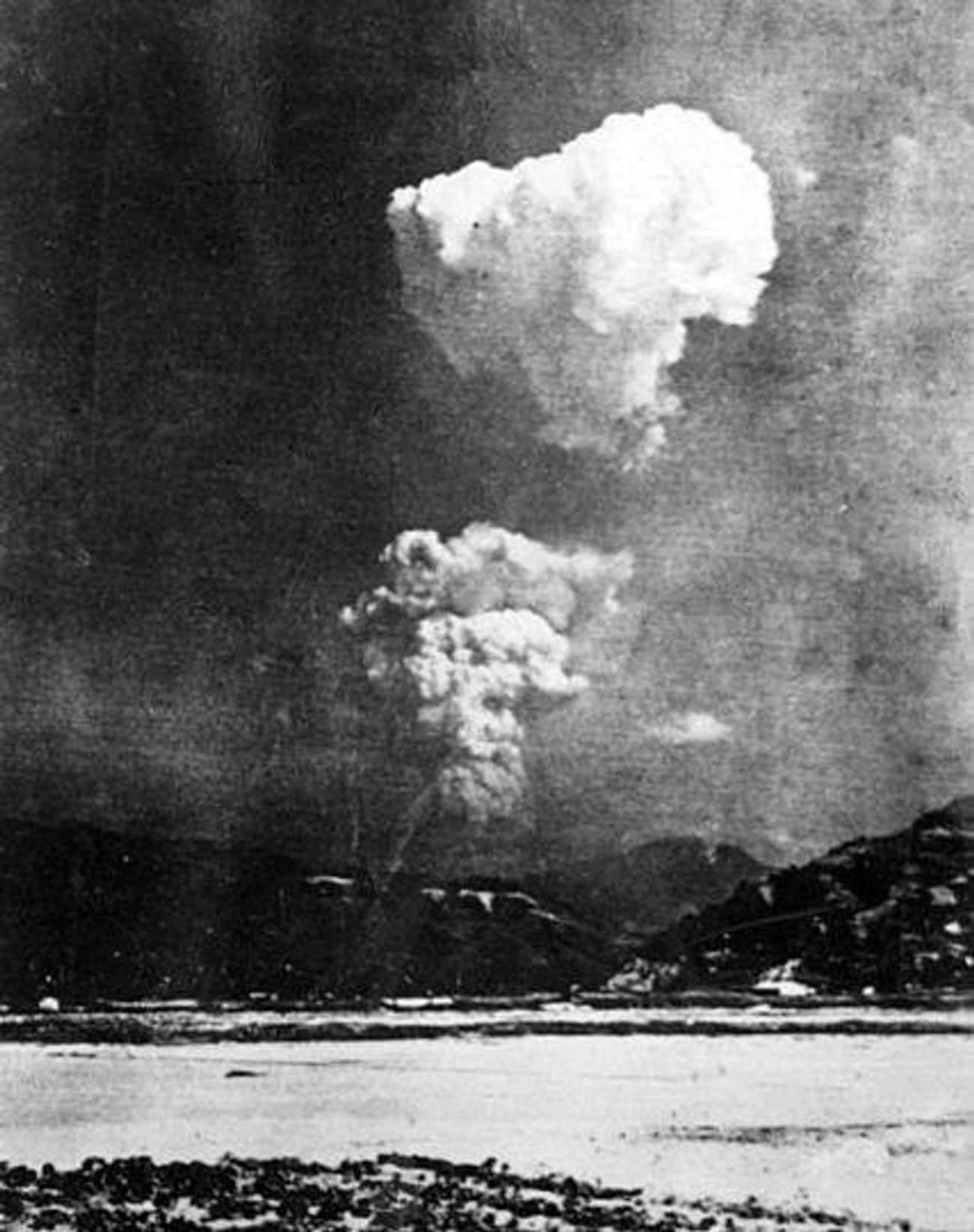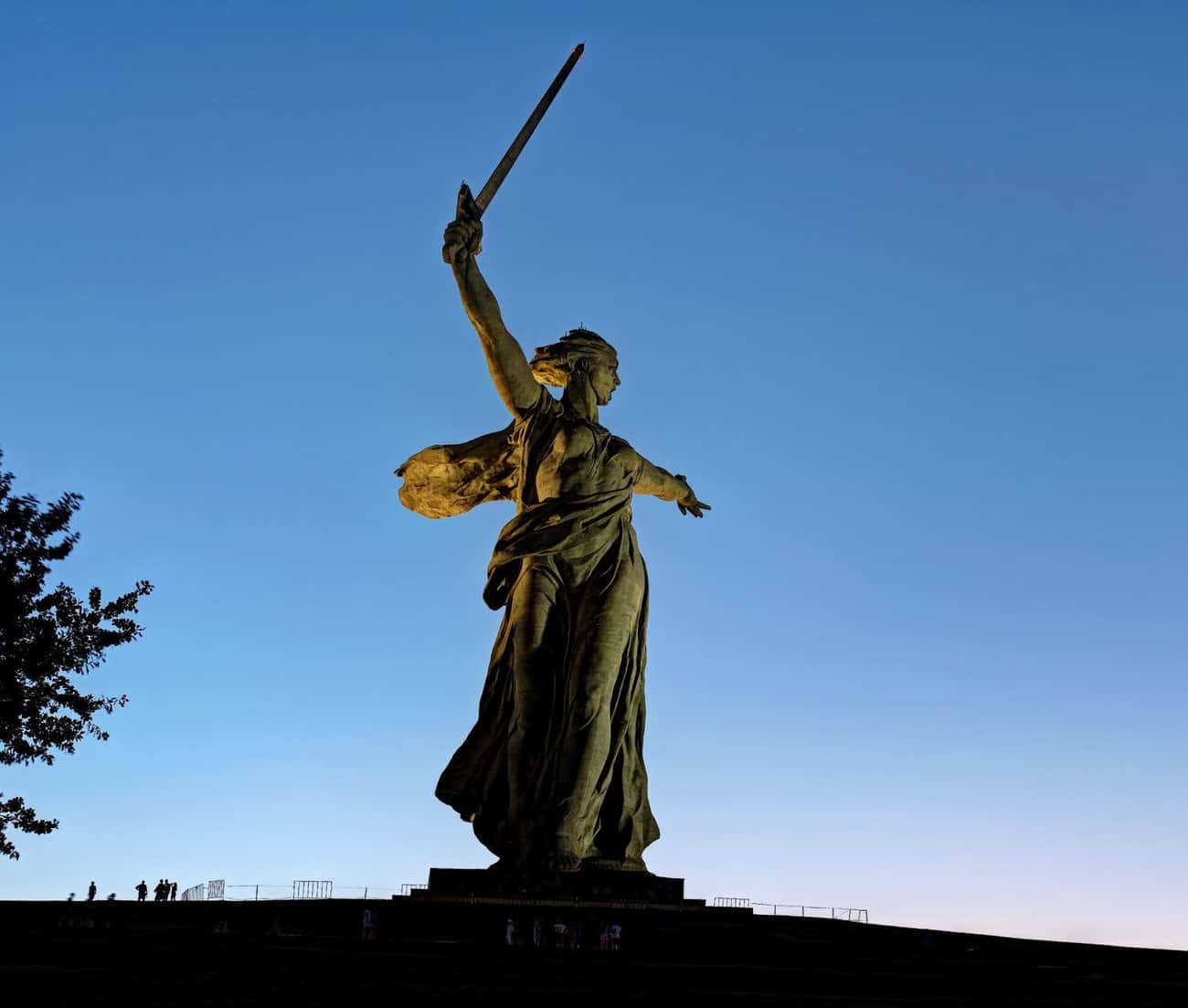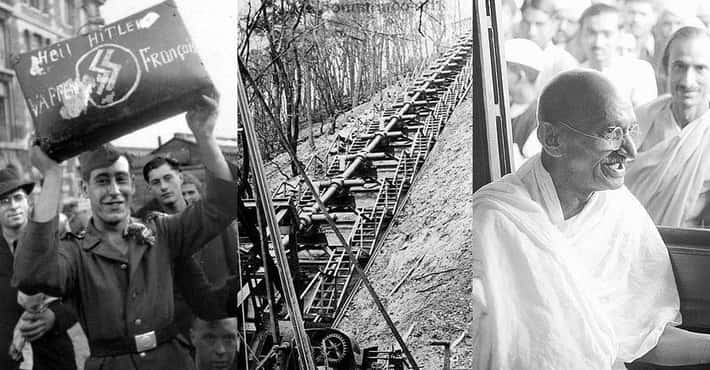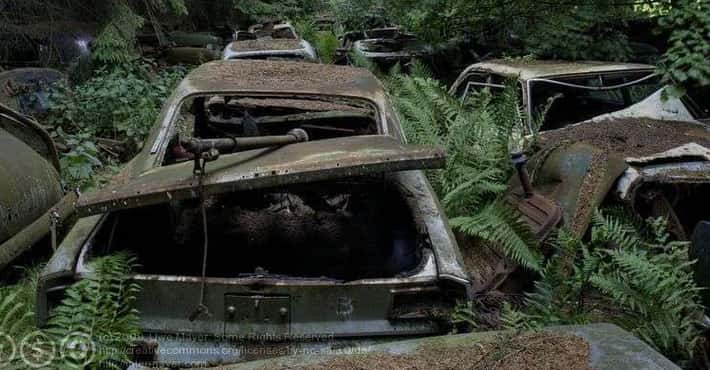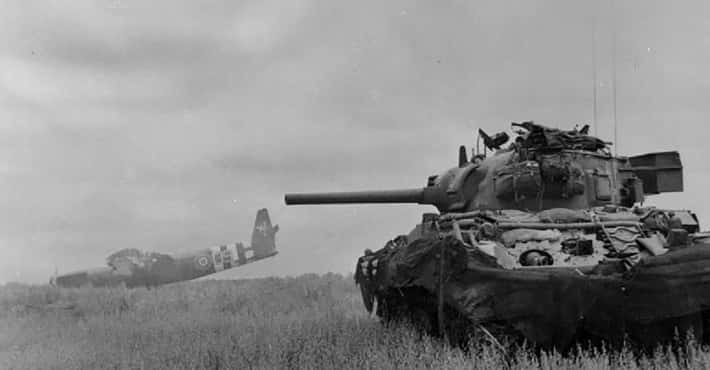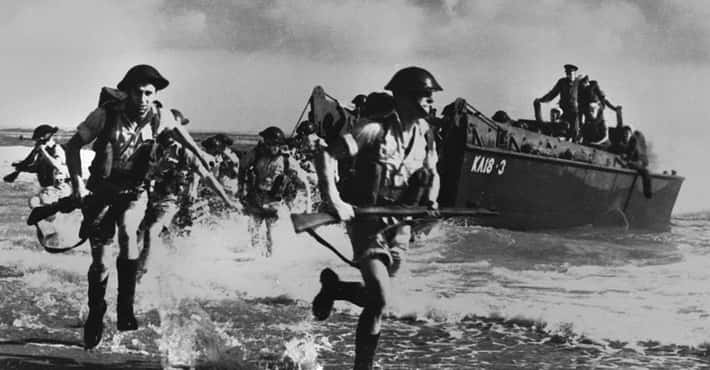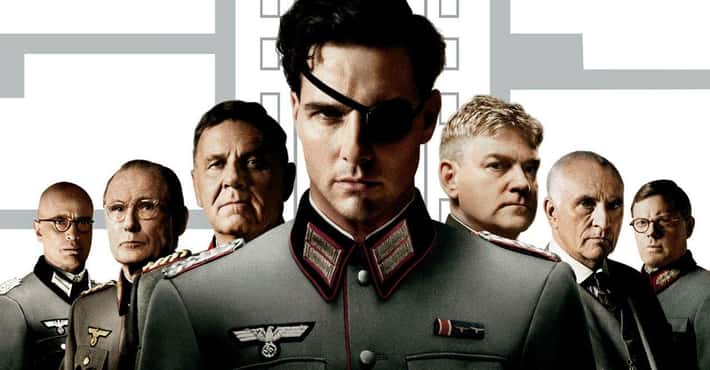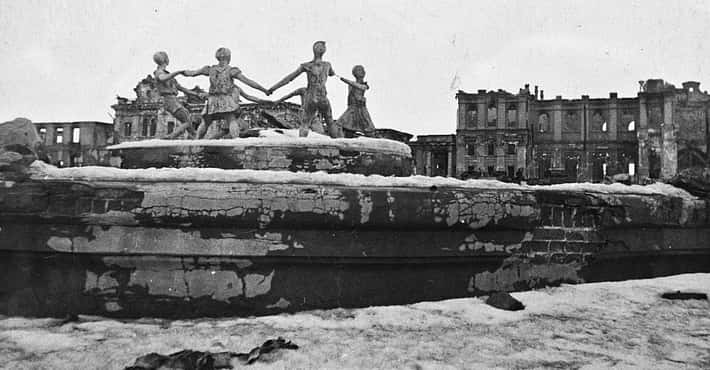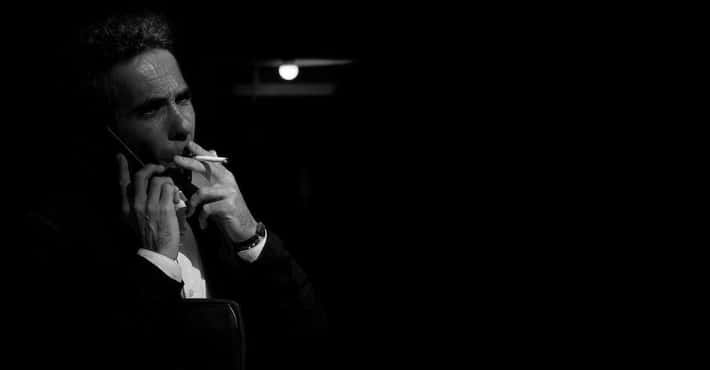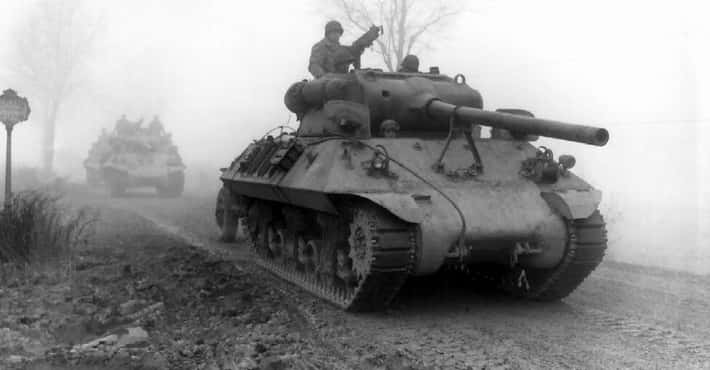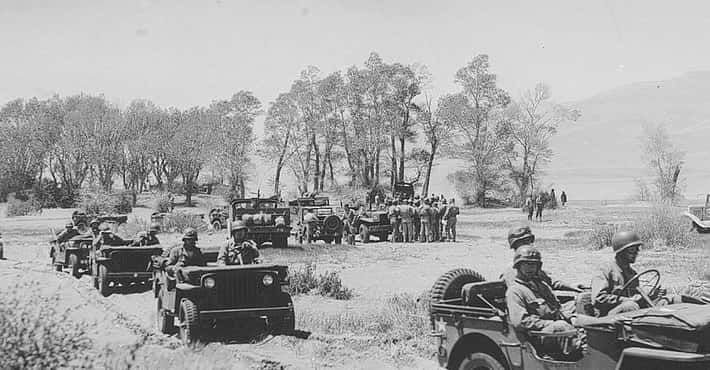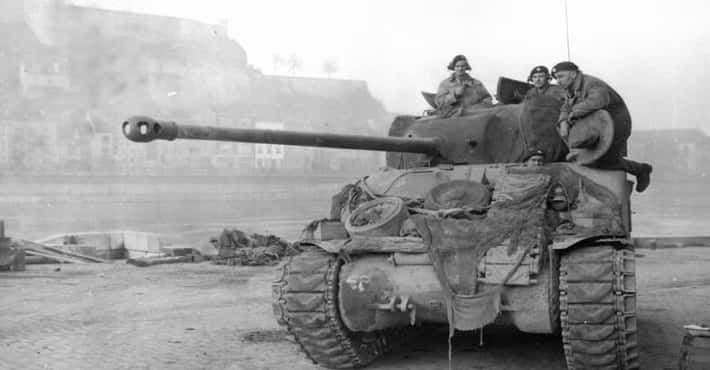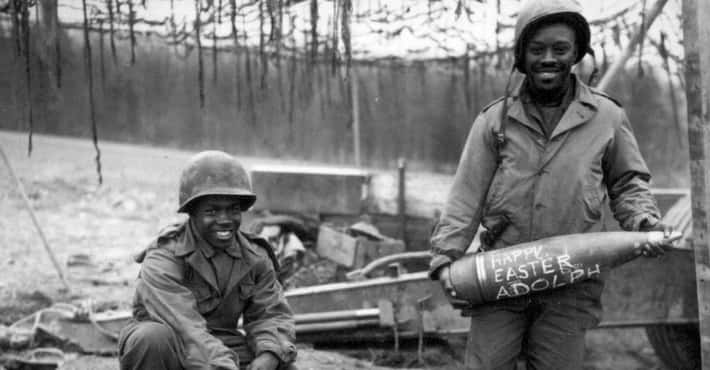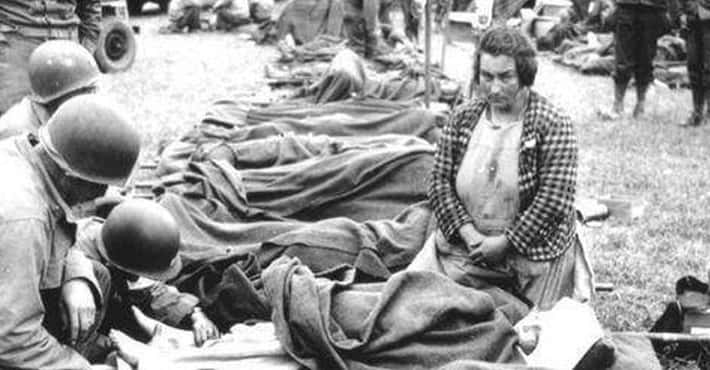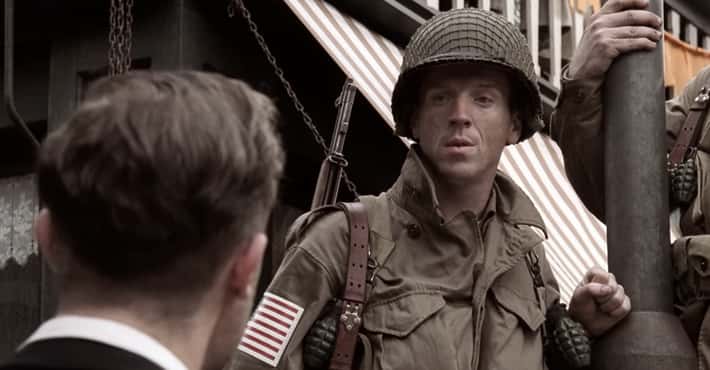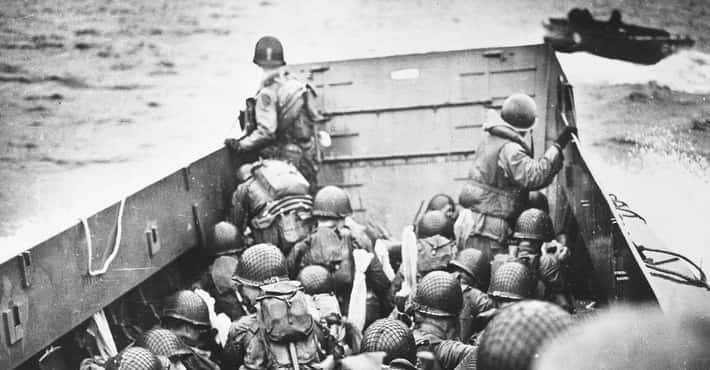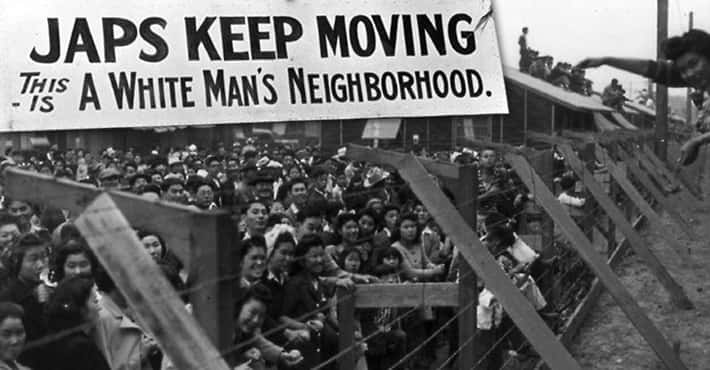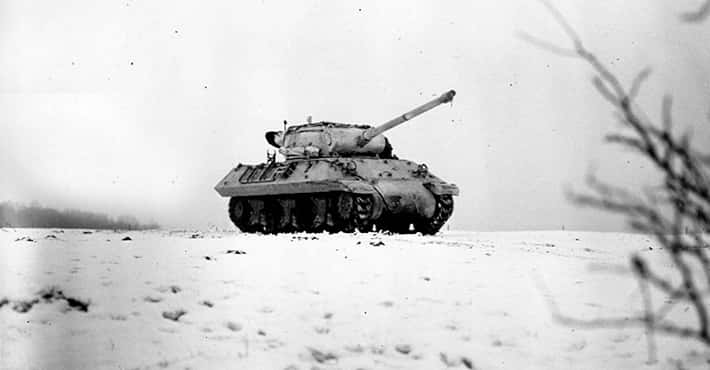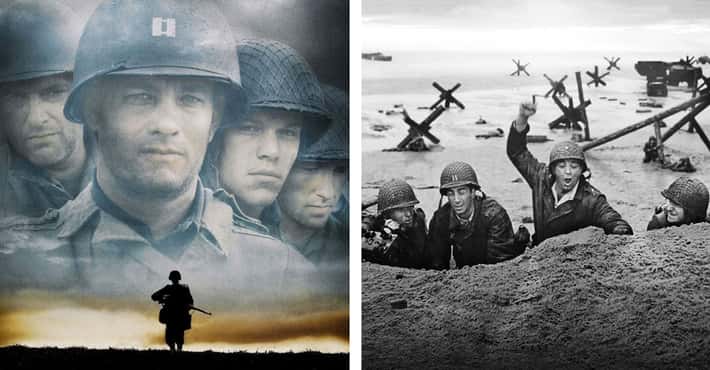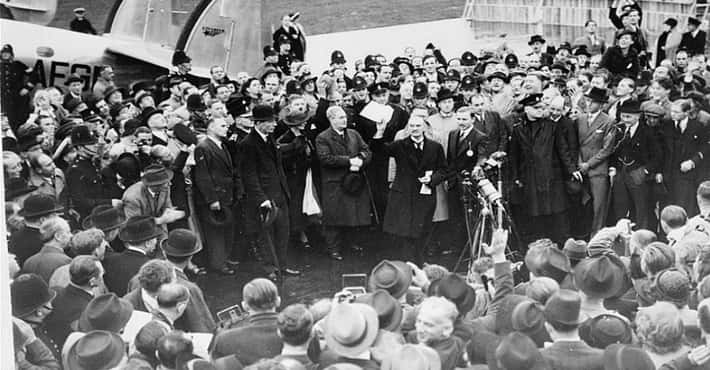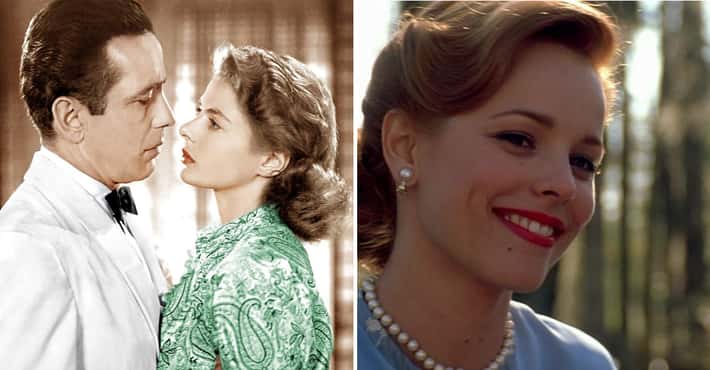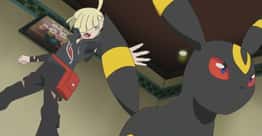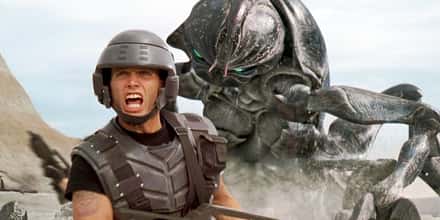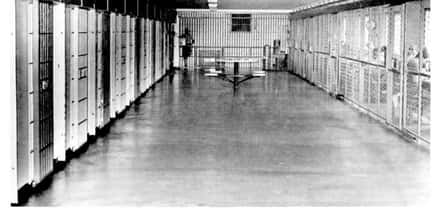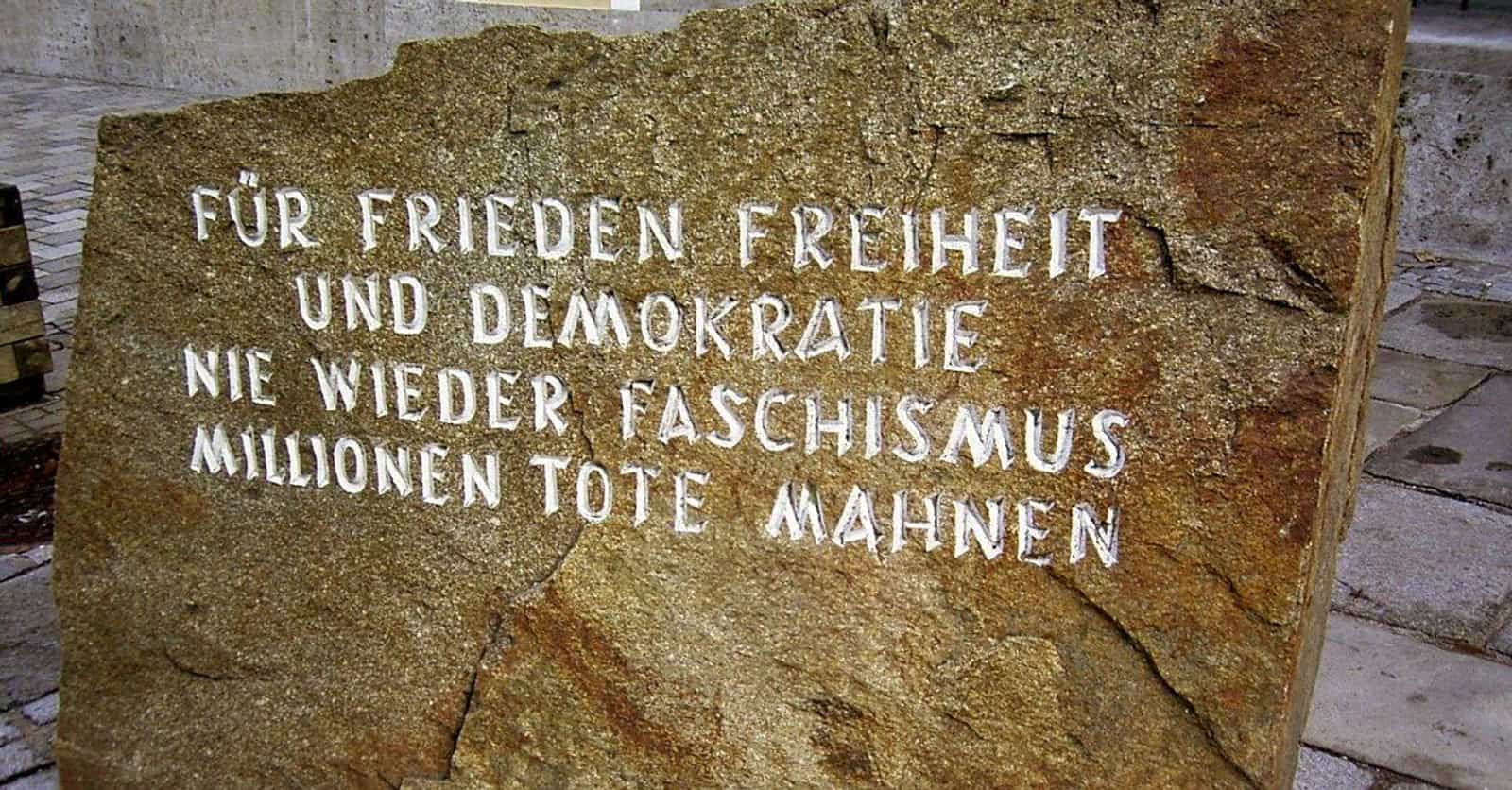
How WWII Is Taught In Various Countries
- Photo: Dorsm365 / Wikimedia Commons / Public domain11,956 VOTES
German Students Visit Concentration Camps, And 'Schindler's List' Is A Common Teacher's Aid
From Redditor u/Esco91:
All kids have to go on a few visits that all revolve around the [H]olocaust and systems of German government and why they are that way, to places like concentration camps and the Reichstag.
In that way, it's not really taught so much as history, but tied in with the modern era; our kids do a lot of stuff about the reasons behind why things are today.
Redditor u/oeynhausener adds:
It was brought up frequently; each year there would be at least one course that had at least related topics. Also, one year of the whole history course would be... dedicated to the "[T]hird Reich," its origins and its consequences. Lots of facts, no whitewashing. Teachers would often use movies and lectures, too; Schindler's List being a popular one, for example.
I remember that a lot of the students were complaining due to how often it was brought up, like, "Man, we're reading [this] sh*t again in language course"... On the other hand, it did occur quite frequently that some kids were legitimately freaked out in history class when having to face the actual facts and seeing the pictures and stuff - then again, who wouldn't freak out facing Schindler's List as a kid.
Some courses also made educational class trips to concentration camps (you had the chance to nope out though if it got [to be] too much).
Redditor u/antaran adds:
Operational history of WWII is almost not taught at all. There is maybe a short overview of the... events for both [theaters] for a single 45-minute lesson, but that's pretty much it.
History teaching in Germany is focused on a meta level; i.e., the rise of fascism, the (constitutional) flaws of the Weimar Republic, how Hitler slowly accumulated power and installed a dictatorship, the Holocaust, German atrocities, the Allied plans for post-war Germany, etc.
- Photo: Juan Pablo Ortiz Arechiga / Flickr / CC-BY 2.02845 VOTES
Sachsenhausen Is A Common Destination For German School Groups
While some of the most notorious German camps are located in relatively far-off Poland, Sachsenhausen is just a few miles from Berlin, making it well-situated as a destination for school field trips.
Amid concerns about rising antisemitism in Germany, educators encourage concentration camp visits to give students a better understanding of their own history. In some schools, the trips are mandatory.
Sachsenhausen, now a museum, offers guided tours that explain the realities of camp life and try to make the inmates' historical experience more vivid.
- Photo: U.S. Army / Wikimedia Commons / Public domain3843 VOTES
Japan And South Korea Have Been Embroiled In A Long Dispute About History
For years, the education ministries of Japan and South Korea have engaged in a sort of proxy conflict, escalating claims against one another in textbook descriptions of WWII. Among the points at issue is the ownership of the Liancourt Rocks, a group of islets in the Sea of Japan, which South Korea claims were ceded by Japan along with other offshore possessions after WWII.
More remotely, but still in living memory for some, is the fate of the Korean "comfort women" who were impressed into sexual servitude for Japanese soldiers. In 2015, only one of the history textbooks approved by Japan's Ministry of Education, Culture, and Technology even mentioned comfort women. That same year, Japan offered reparations to former comfort women who still survived, but the issue wasn't put to rest, as this dark chapter of history continued to be a bone of contention in diplomacy between the two nations.
- Photo: Unknown / Wikimedia Commons / Public domain41,211 VOTES
French Education Looks Back At Vichy With Deep Shame
From Redditor u/Yegonator:
The [F]rench education system was even more Eurocentric than the [A]merican [system], with a large portion of the education based around the shame of the government cooperation and the history of the [F]rench [R]esistance. The Vichy government is talked about with about as much shame and disgust as the [H]olocaust.
If you visit a museum, they receive about the same amount of space within the museum, [and] you get the same impression of how terrible both acts were. It's impossible not to feel the effects of the war, as when the Allies liberated the country, most cities received full-scale bombings and large portions had to be rebuilt. Little to no time is given to non-European parts of the war.
- Photo: Ewa Faryaszewska / Wikimedia Commons / Public domain51,129 VOTES
Polish Education Emphasizes The Civilian Struggle
From Redditor u/DamaHam:
First of all, it of course is highly concentrated on the conflicts in Europe. From what I remember there was emphasis on the everyday lives of the civilians such as those found in the ghettos created in Polish cities.
My history teacher described situations where starvation was rampant throughout these ghettos and... some people were so desperate as to eat their pets, especially dogs or cats.
- Photo: Unknown author / Wikimedia Commons / Public domain61,042 VOTES
The Dutch Emphasize Heroic Tales Of Resistance
From a former Redditor:
[W]e learn about concentration camps, how lots of [J]ews were deported by train to [E]astern [E]urope from here (the [N]etherlands) to eventually die/be killed there. [W]e learn about the resistance movements here. [T]here are multiple children/youth books starring resistance members, and overall people involved in the resistance are seen as heroes.
[W]e don't talk about the people who were members of the NSB (the [D]utch [Right Wing] party); we learn they existed but most people wouldn't admit someone in their family was a member of the NSB.
[W]e learn about several common actions by the resistance. [H]iding people ([J]ews, but also [D]utch young guys pressed for military or industrial service for [G]ermany, [A]merican/[C]anadian/[E]nglish pilots who crashed, and even [G]erman deserters) is a big one.
[A]nother well-known resistance action was destroying registration. [A]pparently the [N]etherlands had a relative good registration of citizens, including information on who was [J]ewish, which made it easy for the [G]ermans to locate [J]ews, so destroying paperwork saved a lot of lives.
- Photo: IMS Vintage Photos / Wikimedia Commons / Public domain7535 VOTES
Italian Education Stresses Social Trends Over Battles And Is Broadly Anti-Fascist
From Redditor Klesk_vs_Xaero:
WW2 is studied in the last class of Scuola Media and Liceo which is to mean 13-14 years of age and 18-19 years of age. In both cases there is some separation between the period of unified Italy, culminating with Giolitti's age and leading to WW1 wich is studied in the first part of the year; and the interwar period, leading to WW2.
[...]
[A] book of exercises, catered to the 11-14 years old, groups the events in three chapters: The beginning of 20th century (from the belle epoque to WW1); The age of Totalitarian Regimes (from the Russian Revolution to 1929); The Short Century (from WW2 to 1989).
Looking further into it, if you jump to page 61, the student is asked to comment on the famous Discorso dei Manipoli which inaugurated Mussolini's tenure as Presidente del Consiglio. The questions include wether the March on Rome could be considered a coup and whether his government was made up only of fascists.
They are later asked to explain the causal relations between certain events during the entirety of the Fascist Regime, including te racial laws, the creation of MinCulPop (Ministery of Popular Culture - the propaganda ministery), Matteotti's [slaying].
In page 63 they are tasked with explaining the causes of the rise of [the Third Reich], thus grouped: Weimar's weakness, economical crisis... lack of reaction of the [E]uropean powers. Later they are asked to find analogies between [German and Italian fascism], for example putting together MVSN (Voluntary Militia for National Security) and Gestapo or comparing the youth organizations. And then they even have to comment on an excerpt from Mein Kampf.
Page 65 deals with the war, and Mussolini's speech after the declaration of war. Those poor kids have two lines to explain what [Germany] and Mussolini wanted from the war.
A graph shows the human casualties during the war. The student should comment on that.
Moreover they are expected to know the meaning of 'parallel war', 'Resistenza', 'partisan', 'Shoah' and the difference between a concentration camp and an extermination camp.
[...]
Of course you should expect much more variety of topics for the 18-19 years old. But the examples given are quite representative of the global attitude, which no longer stresses over events and chronologies but rather on the ability to make connections and understand the development of major social and political trends.
In this context the [military events] tend to be less relevant than the great phenomenons which marked the first half of the 20th century.
To add to this; Fascism is presented in textbooks in an entirely negative way (perhaps lacking some subtlety) and, while revisionism certainly exists within italian society, it is generally confined out of the educational system. Large attention is given to the crimes of the Totalitarian regimes and the nature of the regimes themselves; the analysis of italian colonialism is quite lacking, as is with traditional historiography on the subject.
- Photo: Department of Defense / Department of the Army / Fort Leavenworth, Kansas / Wikimedia Commons / Public domain8814 VOTES
Taiwanese Focus On The Japanese Occupation And Overlook American Bombing
From Redditor u/funnytoss:
[T]his answer really depends on where and when you were educated. Taiwan was technically part of Japan at the time, but for the longest time after the Chinese Nationalist Party... took over Taiwan after WWII, they essentially taught that it was Japan that bombed Taiwan during the war, not the US (since people here are taught that it was a glorious war of resistance against Japanese aggression, and pointing out that many Taiwanese fought for the Japanese empire - both coerced and voluntary - is rather inconvenient).
My parents are Taiwanese and for them it was about the Japanese occupation. My parents also told me about how the war started much earlier for the Chinese, and how brutal [it was] and how many people died.
- Photo: Henri Eveleigh (Bureau of Public Information) / Wikimedia Commons / Public domain91,789 VOTES
Canadians Feel Slighted
From Redditor u/Xxxxx33:
In Canada it's pretty much like this: We fought before the Americans, we were badly [equipped] but still the best fighting force, and nobody remembers us except for the Dutch.
In my Canadian education, I was taught Canada won some of the hardest fought battles and were some of the toughest sons of b*tches. As for [A]mericans, the school system taught me that [A]mericans were people that didn't give a f*ck until they lost a few boats, killed a couple hundred thousands of innocent [J]apanese, and claimed they won the war and saved the world.
***
For a bit of context, while pop culture often celebrates the achievements of American soldiers at Omaha Beach on D-Day, one of the five designated beachheads, Juno, was taken by Canadian forces. 359 Canadian soldiers lost their lives on D-Day, and more than 5,000 perished during the Normandy campaign.
- Photo: Henriksen & Steen / Wikimedia Commons / Public domain101,452 VOTES
Norwegians View The British As The Real Heroes
From Redditor u/mflbach:
Norway: Holocaust, England is heroes, and USA joined [at] the last second to drop the bomb, and a big focus on the [German] invasion on Norway... USA not heroes here.
- Photo: Unknown / Wikimedia Commons / Public domain11862 VOTES
Japanese Schools Emphasize The Victimhood Of Hiroshima Civilians
From Redditor u/japanthrowawayX:
I went to a Japanese school from elementary to high school, and as far as I remember we were not taught about the [Nanjing Massacre], or Unit 731. I did not actually know what Unit 731 was until I just looked it up. (My grandfather actually fought in China in WWII, but he never talked about it, so I didn't know anything except what was taught in schools.)
Now, I wasn't the most attentive of students, but at the very most those events were probably just mentioned in our classes, never talked about in detail. On the other hand, we spent the entire week of August 6-9 talking about... Hiroshima (those are the days the bombs were dropped). Japan was definitely portrayed as the [victim] in our classes.
I'm actually still a little confused about why non-Japanese people think the kamikaze program was so evil. They were suicide pilots, yes? As far as I understand, a lot of the time the soldiers were forced into "volunteering" for the position, and they died crashing a plane into enemy lines. From my perspective, they seem more like a group to be pitied than hated. I would be glad to hear the explanation why they are considered so evil, as I don't really understand this.
Redditor finchfinch adds:
We have two "history" classes; one is "World History" and another is "Japanese History." The former one briefly covers the history of the entire world including the history of East Asian countries (from ancient times to modern times) and WWII. The latter one puts emphasis mainly on Japanese history from [the] [S]tone [A]ge to contemporary age, also including the relationships with other countries (mostly East Asian countries and European countries) according to the situations Japan was facing.
I took both classes for a year (they were supposed to cover them in two years, so when I finished, it was about discovery of the New World/Muromachi Period). Although we didn't cover WWII then, the teachers told us about some of the cases. As I remember, I heard of Unit 731, [the Nanjing] Massacre, comfort women, the results of oppression of Japanese [i]mperialism (how the people outside Japan were forced to live like a Japanese by changing their names, speaking Japanese, being educated like Japanese), etc.
I never felt a bit of heroic sense from the teachers' or friends' voice when looking at what Japanese people did during WWII. It's always more like... apologetic or reflective, maybe partly because we are painfully aware of what our citizens had to suffer from... at the same time.
Also, as we went to Okinawa as a school trip, we studied about it (how Okinawa became a part of Japan and what WWII left there) before visiting, and we heard the talk of an old woman... about the lives of people (both soldiers and citizens) at that time, and actually went to some... shelters the people used. I still can't forget the contrast of a beautiful scenery of beaches and ocean and the sheer darkness inside the caves.
- Photo: Alexxx Malev / Flickr / CC BY-SA 2.012975 VOTES
Russian Education Views Normandy And The Pacific As Sideshows
From Redditor u/Maccabeus07:
1941: USSR is cowardly attacked by [...] Germany... Allies don't do... jack sh*t on the Western [F]ront.
1942: Empire strikes back. Allies toying with [German Gen. Erwin] Rommel in Africa.
1943: [Germany] is on the verge of collapse. Allies hunting down already highly-unpopular-among-Italians Mussolini.
1944: Empire marches towards Berlin. In panic, Allies open Western Front.
1945: USSR wins war and proceeds to kick Japanese [butt] in Manchuria. Allies stuck somewhere on Elba.
Minor points: Stalin is [a] homicidal maniac who almost single-handedly killed USSR. Molotov-Ribbentrop [P]act was a necessary evil. Bombing of Hiroshima, Nagasaki, and Dresden were unnecessary evil. Pacific Front was insignificant for victory... We save the world. The end.
Redditor u/RRRusted adds:
[We learn] [t]he whole thing since [the] early 1920s (rise of [Third Reich]) until Stalin's death in 1953 (I shall consider Stalin's efforts to reanimate the country after the devastating war as a part of WWII since it definitely is an aftermath).
We learn mostly about Soviet-German relationships and, obviously, the stress is kept on our side of the war, but definitely we touch [on] western relationships with [the] Reich a bit, and get a closer look on the [W]estern [F]ront after [D-Day].
Still, it depends on [the] person teaching. Our teacher was extremely biased and pro-Soviet, so she told us some extremely strange things from time to time. Firstly, she was... sure that in [the] USA everybody believes that their country by [it]self won WWII and saved the whole world ([I] have never seen any American who would think that way). Lastly, and that still makes me cringe, she was sure that Swastika is a symbol made of four Cyrillic Gs (Г) standing for four Nazi leaders (Hitler, Goebbels, Himmler, Göring — their surnames begin with Г in Russian). This makes so little sense that I still wonder how did that person end up teaching history in schools.


